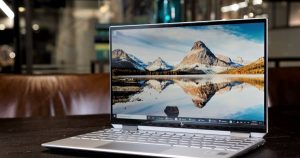Come with us, back to 2003, when a little show called The OC debuted on the WB and each episode began with the refrain: “California here we come / Right back where we started from / California (California) / Here we come!” Can you hear it, that theme song?
We imagine President Donald Trump whistled something similar this week, when he officially announced that his administration would strip the Golden State of the 50-year-old waiver allowing it to set its own auto emission rules. Really, it’s not that funny: The feds want to freeze emissions standards, at a time when 29 percent of the country’s greenhouse gas emissions come from transportation, and it wants to stop the states from creating their own, more stringent rules. In fact, California has a history of pushing automakers to clean up their acts. Now, California and 22 other states have sued the government, so expect this one to drag on.
Also this week: Amazon and Rivian gave a boost to electric vehicles, and we wondered what the GM strike means for the future of autoworkers. It’s been a week; let’s get you caught up.
Headlines
Stories you might have missed from WIRED this week
- The electric vehicle startup Rivian lands a very, very big order: 100,000 electric delivery vans, to be delivered to Amazon by 2030.
- And here’s why all electric vehicle lovers should keep their eyes on big electric fleet buys in the years to come.
- Over 40,000 General Motors workers went on strike this week—a reminder that an industry dominated by electric vehicles likely won’t employ as many workers in the future as it does today.
- The Trump administration officially revokes California’s ability to set its own auto emissions, a move that pins automakers between state and federal regulators.
- And that’s a bummer, because California has a long history of pushing automakers to build cleaner cars.
- If jogging (and saving the planet) is your transportation mode of choice, check out these “post-petroleum” running shoes.
Head Fake of the Week
On Thursday, news spread around the internet that Daimler is out of the internal combustion engine game, for good. But a spokesperson told WIRED that not the case. “Daimler AG has not made any decision to opt out of the development of internal combustion engines,” the spokesperson said in a statement, and noted that, because its newest generation of engine was “still in its introduction phase,” there is “no decision to be made on a potential next generation.” Daimler’s goal is still for half of all its 2030 car sales to be plug-in hybrids and electric vehicles.
Stat of the Week
$968 Million
The venture capital invested in “micromobility”—that is, scooter-share and bike-share services—in the first half of 2019, according to a report from Pitchbook. That may sound like a lot, but venture firms invested more than $3.8 billion in the same sector in 2018. Does that mean that interest in the sector is waning—or just that it’s becoming more mature? A Pitchbook analyst says he’s optimistic, and expects companies like Bird and Lime to stick around.
Required Reading
News from elsewhere on the internet



